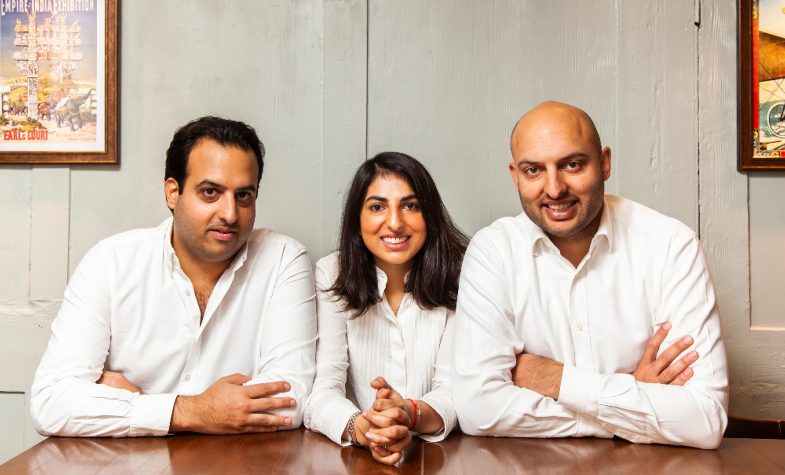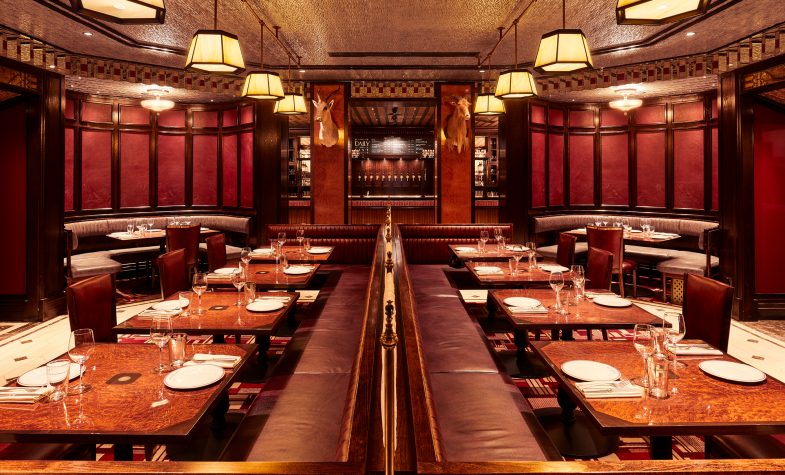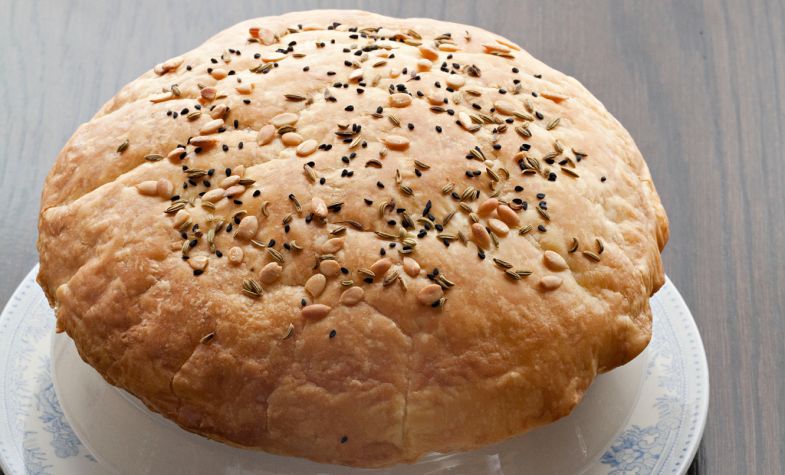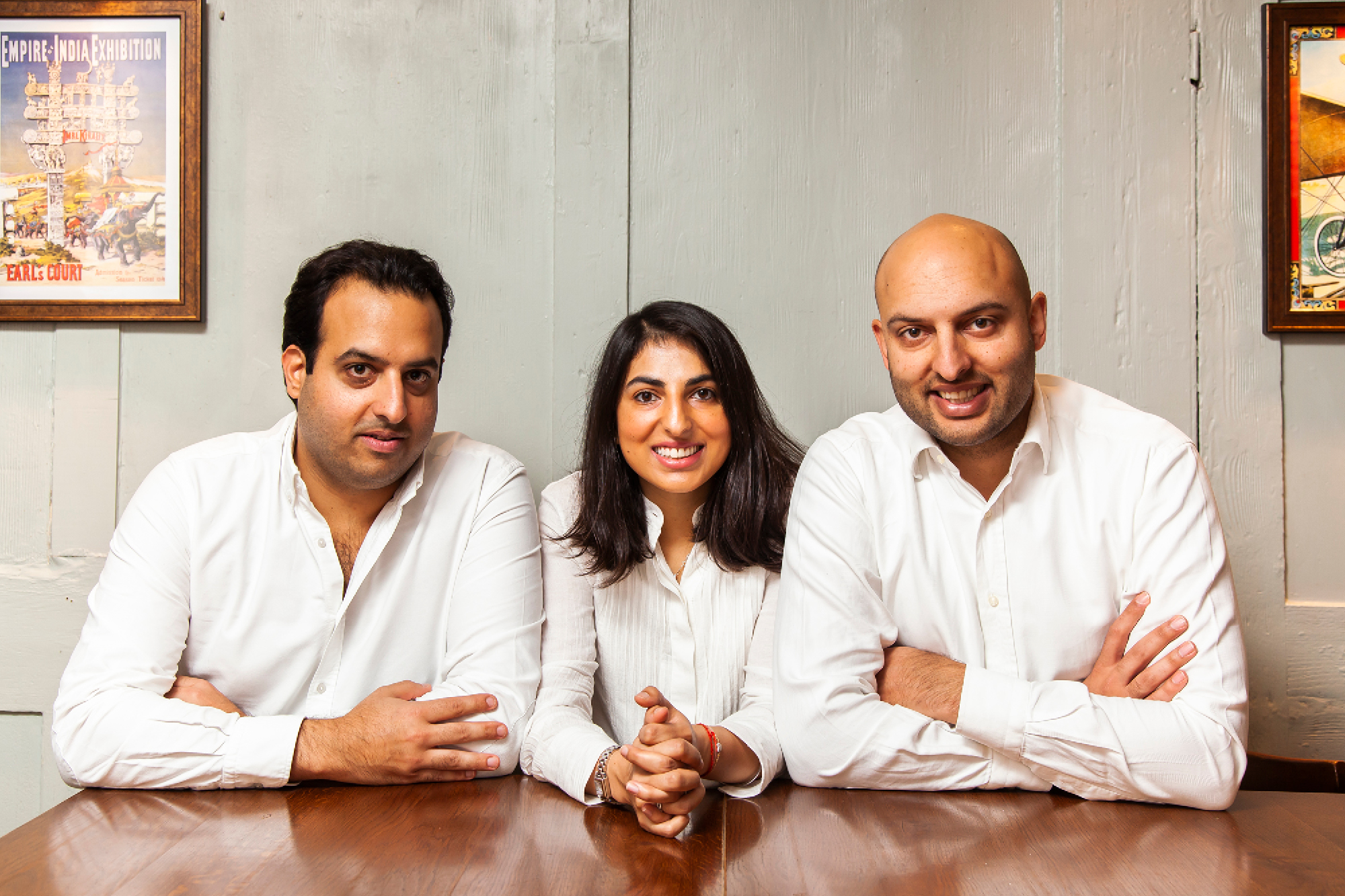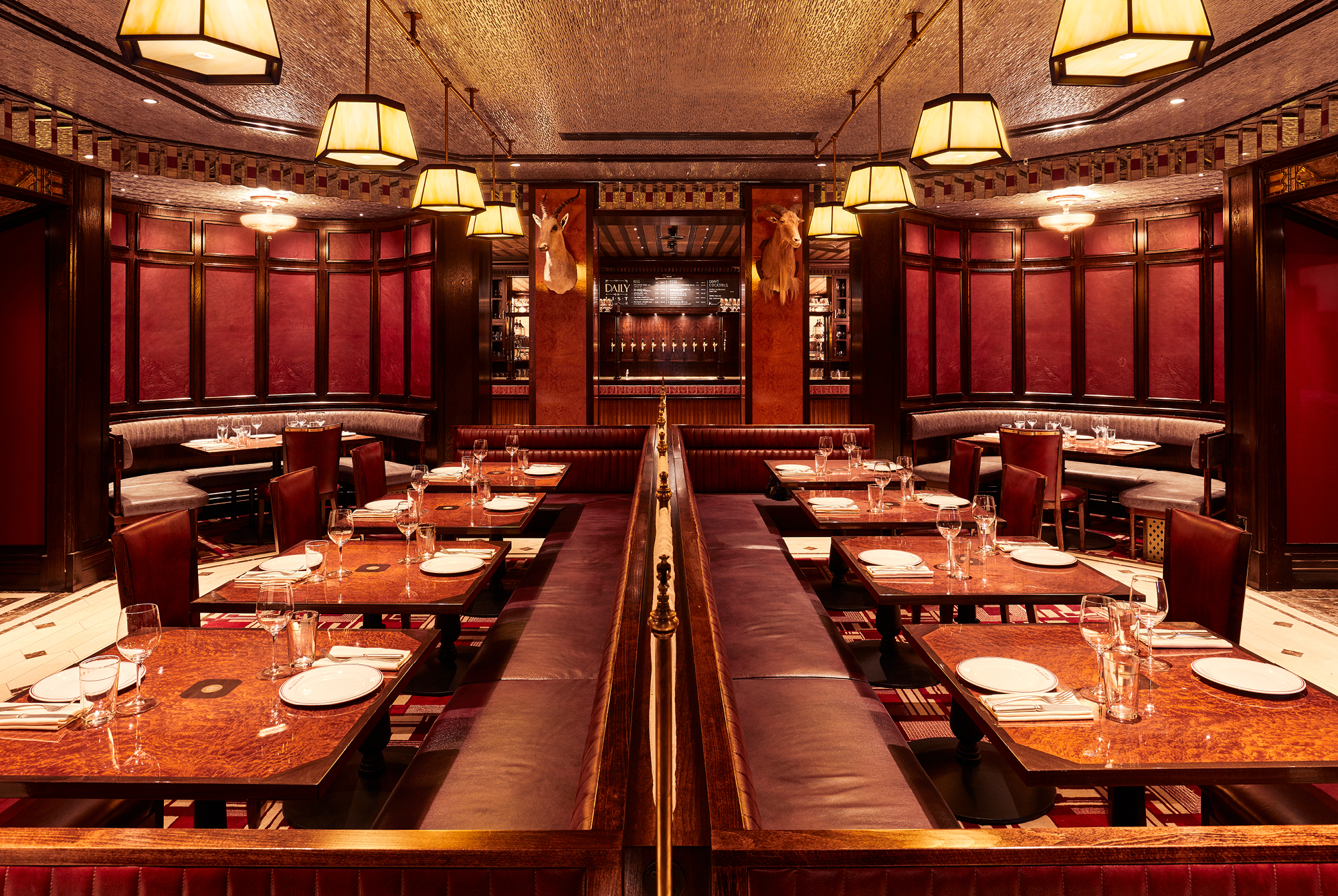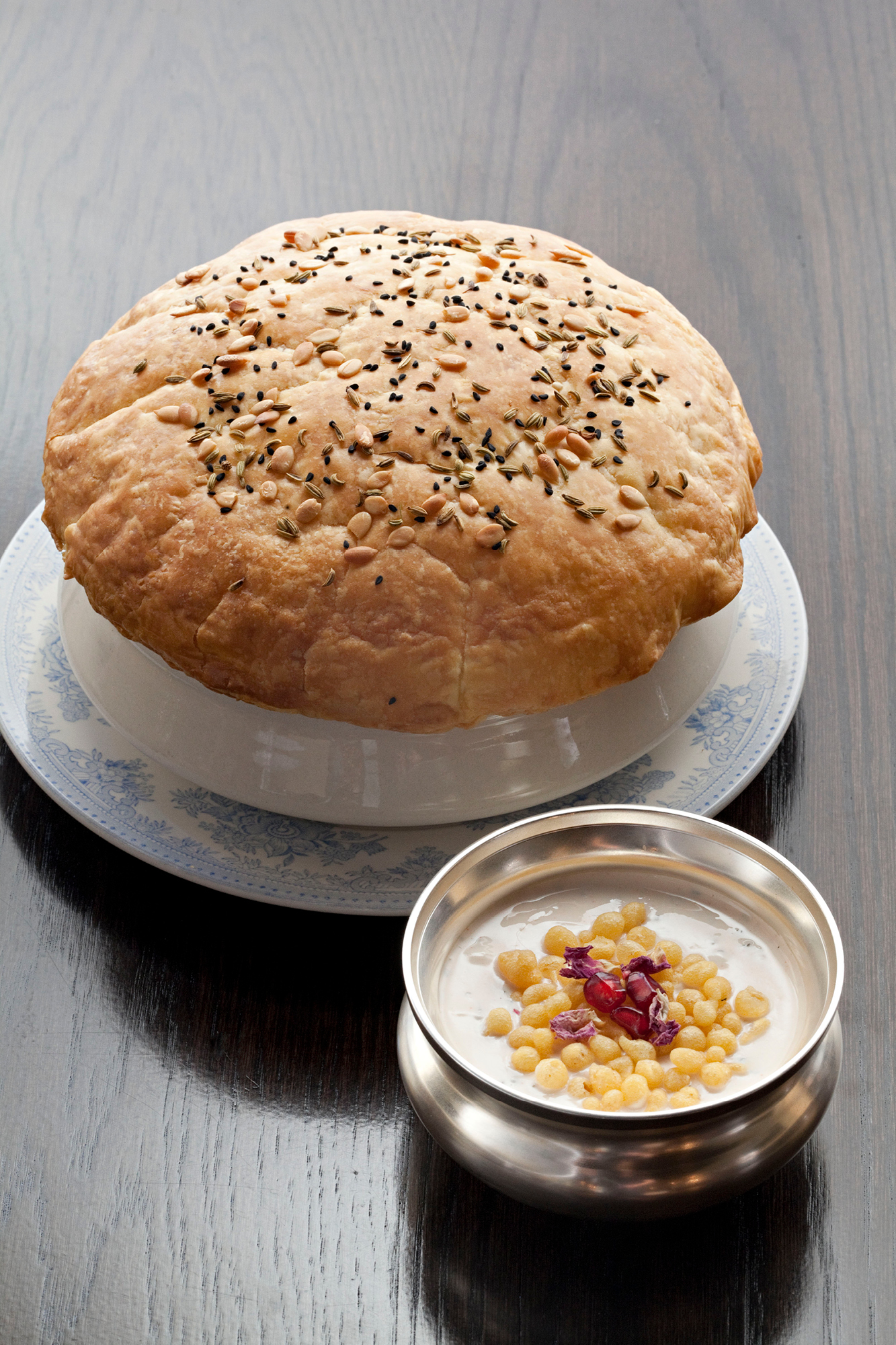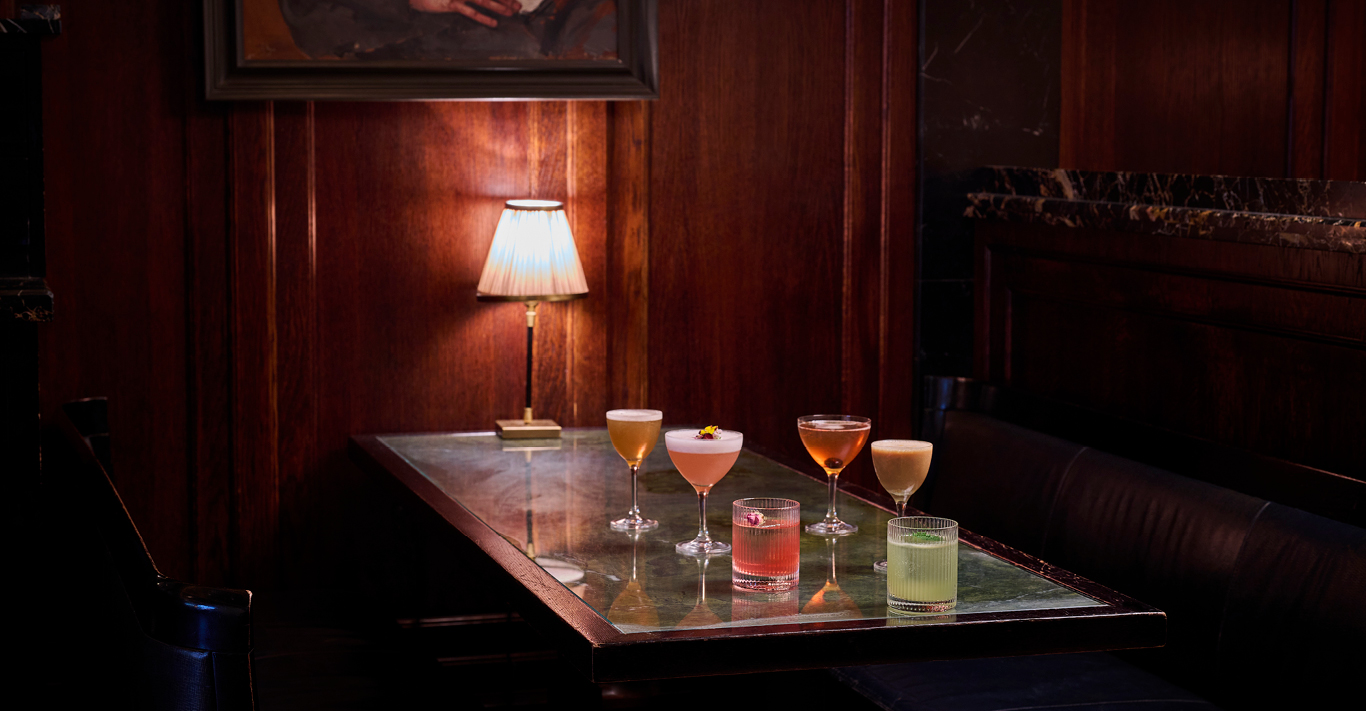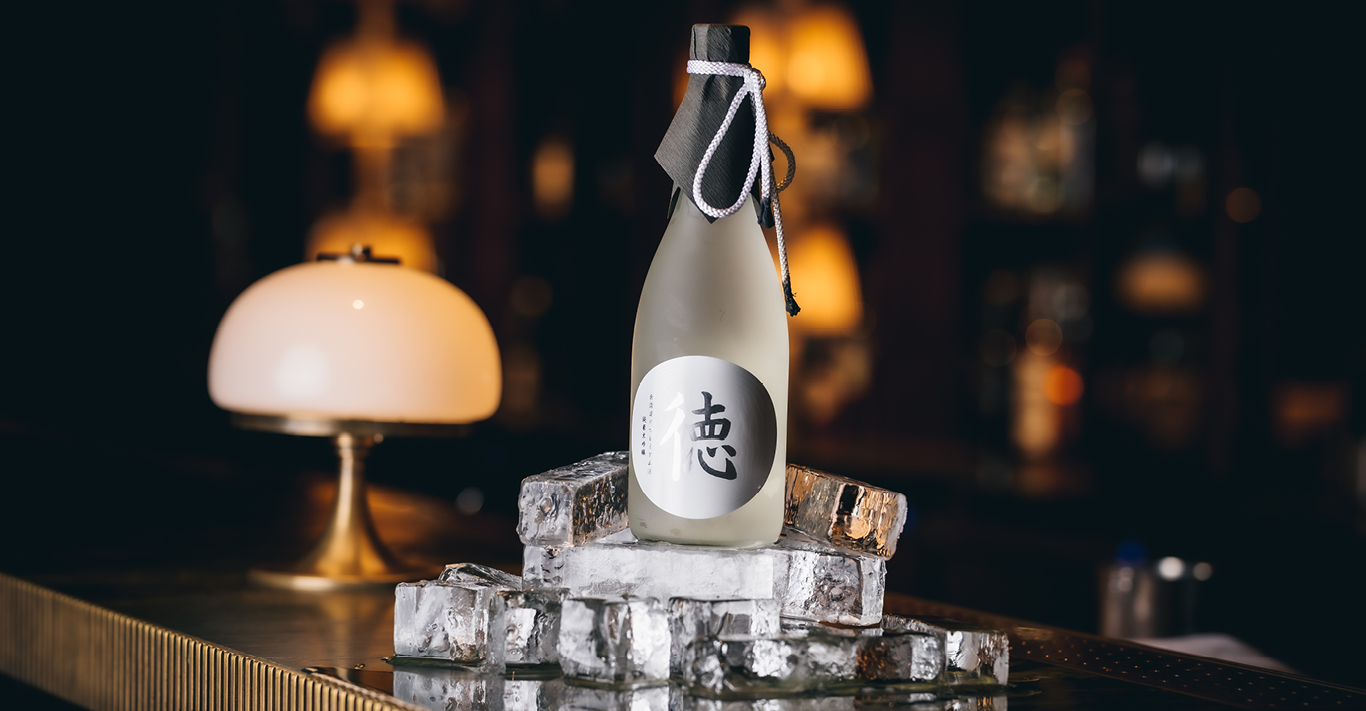WORDS
Lucy Frith
‘Food is such a huge part of our lives,’ says Sunaina Sethi, who is sitting across the table from me, beside her brothers Karam and Jyotin. ‘When we were growing up, our parents would entertain a lot and we’d all enjoy helping out. Karam would be kitchen-hopping, Jyo was probably the only one who could hold a conversation with people my parents’ age, and I was always keen to help serve and pour the drinks.’
Together, the siblings run restaurant supergroup JKS: a rich portfolio of restaurants, including five Indian restaurants created by the Sethis (Trishna, Gymkhana, Hoppers, Brigadiers and Motu) alongside the group’s partner restaurants, which between them hold seven Michelin stars and two Bib Gourmands. Today, mirroring those early dinner-party roles, Sunaina is in charge of operations and wine list development, Karam is responsible for food and concept, and Jyotin brings his experience in private equity – having spent 11 years at Barclays – to the commercial side of things. Since opening its first restaurant Trishna at the height of the UK financial crisis in 2008, JKS has opened a number of game-changing restaurants, many of which are the best in their category, earning the group a reputation for excellence. ‘When we first opened Trishna, for the first 18 months to two years it was more about survival and proving to everyone that we hadn’t made a mistake,’ says Karam. ‘We knew we wanted to be more than just one restaurant but we didn’t imagine at the time that, a decade on, we’d end up with a portfolio of different brands encompassing Taiwanese, Spanish and British cuisines.’
Staying on top of the ever-evolving London dining scene is something that sets JKS apart. ‘We are opening restaurants that serve food we like to eat ourselves and that stand the test of time,’ says Jyotin. ‘We have Trishna, which is 10 years old, Kitchen Table and Bubbledogs are now seven years old and Gymkhana is six years old. And while we have to evolve because of changing consumer tastes, we don’t want to create restaurants that are fads.’ As well as its Indian restaurants, JKS has partnered with some of the world’s most talented chefs to forge a portfolio comprising the best international cuisine in London, from Nieves Barragán’s Michelin-starred Spanish restaurant Sabor in Soho and the two-Michelin-starred Kitchen Table in Fitzrovia to casual dining at Bao, with various locations across the capital.
‘The key to our whole business is the balance between operational, creative and commercial,’ says Jyotin. And when it comes to successful partnerships, Sunaina says, ‘you have to have people who you can trust, who are as passionate about what they are doing as we are’. Jyotin agrees: ‘They have to believe that they are the best at what they do in their category. We support them in areas they might not be very strong in: property, HR, finance. But at the same time we couldn’t open a British or Spanish restaurant without those people as our partners.’
One attribute that links most of JKS’s restaurants is accessibility. ‘You can go to the bar at Gymkhana and have a drink and a couple of bites for £20 or you can have a full-blown tasting menu with wine pairing for £125,’ says Karam. ‘Gymkhana is the restaurant that changed the game for us. We were creating a product that felt very familiar and elevating it: a vindaloo using suckling pig cheeks or Indian scrambled eggs with lobster – all close to as you would find it in India but using the best of British ingredients.’
When Gymkhana opened in 2013, it marked a turning point for the whole industry too, thanks to its authentic fiery dishes and curated wine list, something that was a rare sight in London’s Indian restaurants. Sunaina’s list introduced a new way of approaching wine that was more accessible, giving diners the tools to become more knowledgeable about wine without having to call the sommelier. ‘Removing any of the stiffness around wine is key,’ she says. ‘It’s all very well me reeling off all the technicalities of wine but at the end of the day, if you don’t like it you’re not going to care.
Authenticity is another essential JKS quality and something its Indian restaurants have in abundance. ‘I love the idea of the food that we serve stemming from the food we grew up eating,’ says Karam. ‘The kind of very rustic, homely Indian food we would eat at our grandparents’ house – that’s the ethos behind the menus at our restaurants. The food is very true to its roots.’ And, it seems, the Sethis’ relatives are their harshest critics. ‘Our family are some of the fussiest eaters we’ll ever meet and so if they’re happy then it’s all good,’ says Jyotin. ‘In fact, Brigadiers was inspired by our grandfather and his love of whisky, beer, sports and kebabs. Baba would have hated to have a restaurant based on his loves – he was so low-profile but we have a big picture of him up.’
If food and drink is at the heart of the JKS empire then family is its backbone. ‘You’re always going to have your ups and downs but the thing about working with siblings is that issues are resolved more quickly,’ says Sunaina. ‘You don’t have to worry about upsetting people because you’re so used to just shouting at each other and reaching a solution. Our goals are aligned and we’re all heading in the right direction so you just do whatever it takes.’

